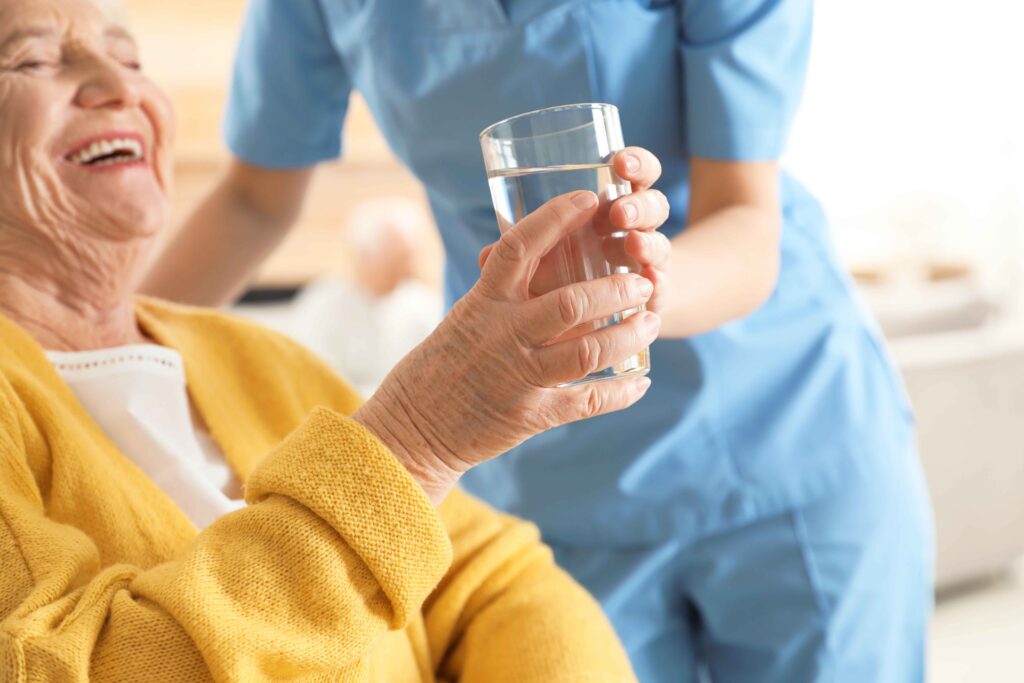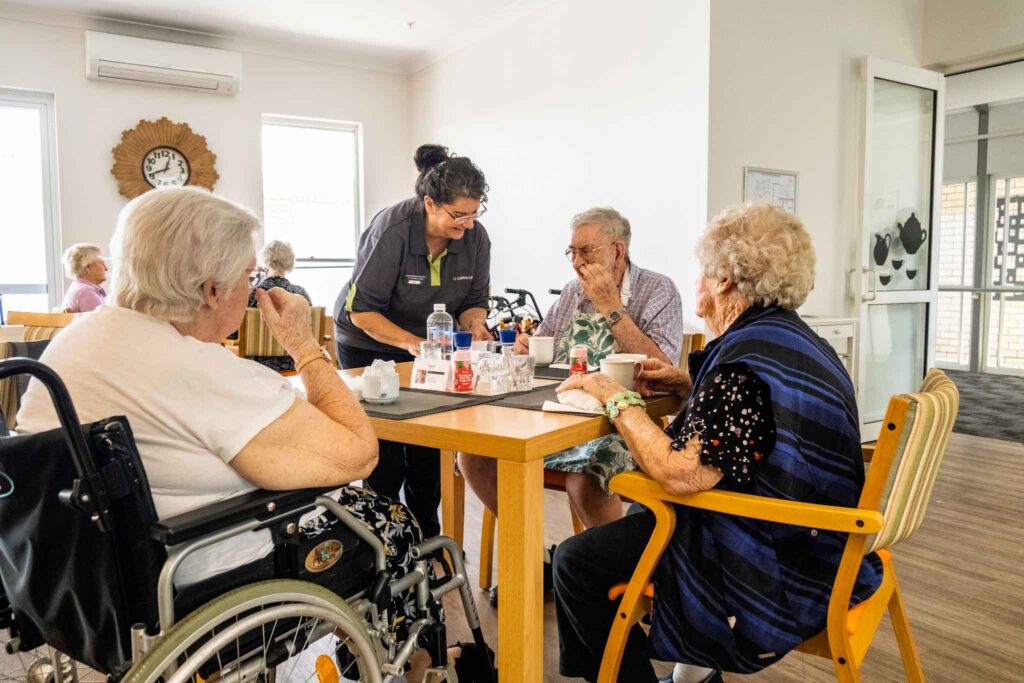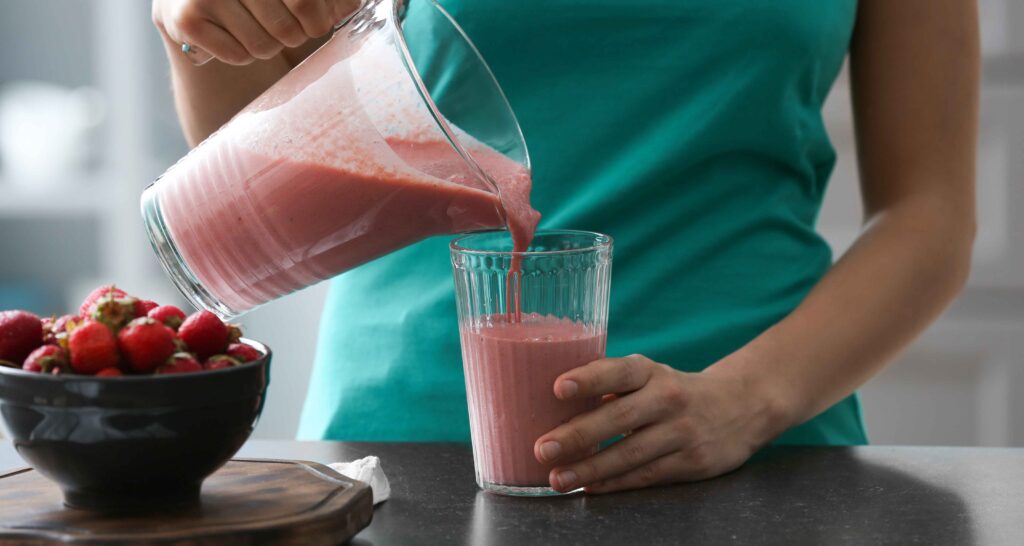As we start to head into the warmer months, you might be inclined to dismiss the usual warnings about heat and hydration. After all, staying hydrated seems simple enough – just drink some water if you’re thirsty. But as we age we often face new challenges that might not have bothered us in years past, and food and drink can often be the source of these concerns.
While the elderly need to drink the same amount of fluids as younger adults, aged care residents might find themselves struggling with a few extra challenges that prevent them from doing so. Whether it’s a fading sense of thirst, forgetting to drink, or any of a range of other issues preventing them from addressing their own hydration needs, well-designed aged care food services can play a key role in supporting nutrition and hydration in aged care residents.

What causes residents to struggle with staying hydrated?
There’s a wide variety of issues that can contribute to residents neglecting their hydration needs. It’s worth noting that while some of these issues might not even be entirely conscious, they present a very real barrier to staying hydrated all the same. Although the root cause of poor hydration will vary from person to person, there’s a few typical issues that can contribute to a resident’s lack of sufficient liquid intake:

What problems can this cause?
Dehydration is dangerous for everyone, but it’s especially dangerous for the elderly population. As our health begins to need some additional support with age, a level of dehydration that might cause a headache for a younger adult might cause memory impairment, cognitive dysfunction, or serious physiological issues for an aged care resident.¹ While the symptoms of dehydration will vary from individual to individual, there are a few typical signs that are especially relevant for older adults:
How do we keep residents hydrated?
While dehydration is always a risk for care residents, it’s a risk that well-planned aged care food services can effectively help mitigate. Older adults are generally recommended to drink approximately two litres of water per day, and we’re here to share a few tips and tricks to help keep residents hydrated outside of mealtimes.
It’s also worth noting that while fluids don’t necessarily have to be water to count as hydrating, not all fluids are created equal either. Here’s a few of the non-water fluids that “count” towards hydration targets:

Given that weight loss and malnutrition are common issues among the elderly, residents generally benefit from receiving much of their hydration from fluids with a greater nutritional value than water. This means that when we serve ice cold milkshakes to our residents between meals, we’re helping them meet their energy and protein requirements with a calcium-loaded treat as well as keeping them hydrated.
The importance of hydration in the elderly
Hydration is a simple concern that can become a serious problem for elderly adults and care residents, but we firmly believe that it shouldn’t be allowed to get in the way of leading full, happy lives. Carefully implemented aged care food services can help support residents in making sure they’re well-fed, hale, and hydrated.
If you’re interested in how a partnership with a caterer who’s always thinking about the health of your residents could benefit your facility, then get in touch with our Aged Care expert via the details below.
¹ Edmonds, Caroline J., Enrico Foglia, Paula Booth, Cynthia HY Fu, and Mark Gardner. “Dehydration in older people: A systematic review of the effects of dehydration on health outcomes, healthcare costs and cognitive performance.” Archives of gerontology and geriatrics 95 (2021): 104380.
² Shimizu, Miyuki, Kensuke Kinoshita, Kazuya Hattori, Yoshio Ota, Takao Kanai, Hiroyuki Kobayashi, and Yasuharu Tokuda. “Physical signs of dehydration in the elderly.” Internal medicine 51, no. 10 (2012): 1207-1210.